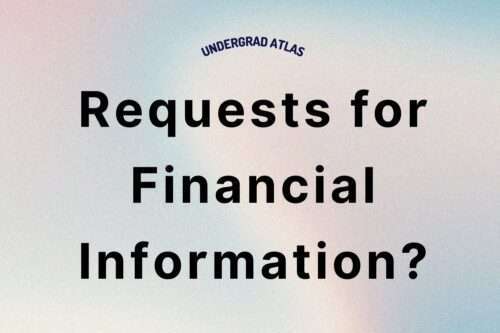Are you eagerly waiting for that decision from your dream school? The anticipation can be nerve-wracking, but what if we told you that there is a way to receive an early indication of admission? This is where “likely letters” come into play. You might be familiar with classic marketing letters, but there’s another letter that might say:
Congratulations! Our Committee has reviewed your application and I am delighted to tell you that among our nearly 50,000 applicants, yours was among a small number that stood out for us.
Your Dream School
In this article, we will delve into the world of likely letters, decoding what they mean for college candidates and how educational institutions use them. So, let’s unravel what it means if you receive a “likely” and discover their significance.

What are likely letters?
Likely letters are a form of communication that some colleges and universities send to certain exceptional candidates. Likely letters are typically sent to students who have demonstrated outstanding academic achievements, extracurricular involvement, or athletic prowess. Essentially, a “likely” is the college’s way of indicating a strong interest in the student and the intention to offer them admission.
Colleges use these letters as a tool to attract top students to their institution. By sending them, colleges hope to secure commitments from these highly sought-after students before official decisions are released. It’s important to note that likely letters are not guarantees of admission, but they do provide a strong indication that the recipient is likely to be admitted.
Who Receives These Early Writes?
The process of sending likely letters varies among institutions, but it generally involves a careful evaluation of outstanding applicants. Admissions officers review the academic achievements, extracurricular involvement, and potential contributions of these students to the college community.
The aim is to identify strong candidates likely to have multiple college options and might need extra persuasion to choose their school. This often includes:
- Recruited athletes: Universities use “likelys” to attract top athletic talent and lock them in early.
- Academic standouts: Students with exceptional academic achievements, leadership qualities, or unique talents might receive these letters.
- Early action applicants: Many likely letters are sent to outstanding early action students to demonstrate their interest and encourage them to withdraw applications from other colleges.
Do likely letters guarantee admission?
While likely letters indicate a high chance of admission, they do not guarantee acceptance from the school that sent the letter. Official acceptance still depends on completing the admissions process and meeting any additional requirements.
How do colleges send likely letters?
Schools send likely letters directly to the applicants they deem most desirable. These letters are generally sent in mid-February and early March, several weeks before regular admissions decisions are released.
They are a way for colleges to express their interest in the prospective students and to encourage them to seriously consider their institution.
What do likely letters mean for applicants?
If you receive a “likely”, it’s a strong indication that the college or university is highly interested in you. This does not mean you will receive an official acceptance letter, but it signifies that your application has caught the attention of the admissions committee.
Receiving such a letter is certainly a reason to celebrate, but it’s important to remember that it is not a guarantee of admission. You still need to wait for the official change in admission status for regular decisions (which usually come out in late March and early April)
What to Do When You Receive a Likely Letter
When you receive the letter, it’s important to approach it with both excitement and caution. Here are a few steps you can take:
- Follow any instructions provided in the letter, such as confirming your interest in the college.
- Use it as an opportunity to reaffirm your interest in the college. Consider contacting admission coordinators or attending any visiting events specifically for likely letter recipients.
- Likely letters often mean you’ll get into the school. However, there were incidents where students ended up getting rejected – so Keep your expectations realistic.
How do colleges use likely letters?
Likely letters are a tool schools use to attract exceptional contenders and increase their yield rate. Yield rate refers to the percentage of admitted students who decide to enroll in a particular institution.
By sending such letters, colleges aim to secure commitments from outstanding students and ensure a strong incoming class. This strategy is especially prevalent among selective colleges seeking the highest yield rates.
What does receiving a likely letter mean for applicants?
For any student, receiving a “likely” is an extraordinary achievement. It serves as an affirmation of their accomplishments and affirms their chances of gaining admission to the college of their dreams. However, it’s important to remember that these letters are only sent to a small number of strong applicants, and many strong candidates do not receive them.
Additionally, some colleges may offer special benefits to students who receive likely letters, such as priority consideration for financial aid or housing.
How should applicants interpret college likely letters?
If you are fortunate enough to receive a “likely”, it means that you are among the top applicants for that college or university. However, it’s crucial to proceed with caution and not view it as a formal acceptance. It is essential to continue maintaining a positive impression and to wait for the official admission decision.
Do All Colleges Offer Likely Letters?
Not all colleges and universities send likely letters. They are more commonly used by selective institutions, especially those in the Ivy League or other highly competitive academic settings.
Many other prestigious institutions, including Barnard, Brandeis, Bowdoin, Clark, College of William and Mary, Duke, MIT, Rice, Stanford, University of Chicago, UCLA, UNC Chapel Hill, and UVA, have been known to send these letters to top-notch students. Even high-rated liberal arts colleges like Amherst, Williams, Smith, and Grinnell have been known to send such letters in the past.
While likely letters may not be sent by every college on your list, receiving one can be a significant recognition of your achievements and potential.
How many College Applicants get a likely letter?
The number of likely letters sent by colleges varies and not all colleges in your college list offer such letters. It depends on the institution’s application review process and the number of prospective students they consider desirable. Ivy League schools and other top colleges, except MIT and Caltech, choose to send such letters to many of the nation’s brightest students. Some colleges, like Princeton, only send them to recruited athletes.
The vast majority of accepted students don’t. They’re called “likely letters”, but they are really unlikely to receive, but it’s probably less than 15% of students or 1 in 6.
Keep in mind this includes athletes. If you exclude them, it’s probably more like 5%, and for some colleges, it’s virtually none.
In 2011, Harvard said they send out about 300 letters, 200 to athletes and 100 to exceptional students. That’s about 15% of admits total, or about 5% of non-athletes who receive a likely.
Stanford said a similar thing in 2007: about 300 students get a “likely”, about 15% of total admits.
Both Harvard and Stanford are D1 schools, so they probably view athletics as more important, versus D3 schools like JHU and the University of Chicago; that might affect the rate.
Vanderbilt invites around 200 students from minority/rural backgrounds to their MOSAIC Program to visit campus in March—about 10% of admitted students.
How Do Recruited Athletes Receive Likely Letters?
Top athletic talents often have a slightly different process when it comes to likely letters. College coaches actively recruit sports talents, and they may extend these letters to those they are interested in recruiting for their sports teams.
These letters serve as an indication that the student has a high likelihood of being accepted and joining the team.
What should I do if I don’t get a likely letter?
You need to understand that not receiving one does not necessarily mean you won’t get accepted to the college. Many admitted students don’t receive a likely letter and still get accepted to their desired school.
Even if you don’t get one, it’s important to stay positive, continue putting forth your best effort, and wait to receive an acceptance.
Summary
To recap, likely letters are unofficial indications of admission sent by educational institutions to top prospective students. While they do not grant automatic entry, they hold significant weight in the college’s application review process. Receiving one is an achievement and signifies the college’s interest in the student.
However, it’s important to remember that formal acceptance depends on the decision of the admissions and financial aid department. Use them as a motivation to continue excelling in your college journey and remain optimistic as you wait for the official decision.
Remember the key facts about likely letters:
- They are sent by a college’s admission office to exceptional students.
- They are a way for colleges to express their interest in prospective students.
- Most students do not receive them.
- A likely letter doesn’t grant admission.
- Students who receive them are likely to be admitted.
- Schools send out likely letters to a very small number of students (top students of the application pool)
Now that you have a comprehensive understanding of likely letters, you can confidently navigate the college admissions process. Best of luck in your journey towards higher education!
Also read: How to Avoid Having Your College Acceptance Rescinded






